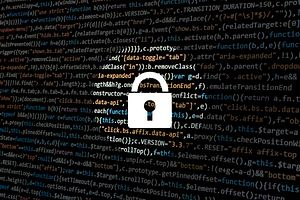Earlier this week, the United States and Southeast Asian states convened the first iteration of a new U.S.-ASEAN Cyber Dialogue. Though it is still early days in the establishment of the mechanism, it nonetheless deserves attention given the focus placed on cyber-related issues by the United States and Southeast Asian states in recent years as well as the opportunities and challenges inherent in advancing tangible collaboration on this front.
Among the areas that has gained greater traction in U.S. and Southeast Asian circles as well as within the wider U.S.-ASEAN relationship is the cyber realm. Cyber issues have been of interest to both sides, with Southeast Asian states looking to build up their ability to manage the opportunities and challenges offered by the digital economy and the United States and other like-minded states looking to shape norms in areas such as 5G and advance capacity-building. Cyber and digital issues have also been featured in broader visions by both sides to varying degrees, be it ASEAN’s Outlook on the Indo-Pacific or the U.S. free and open Indo-Pacific strategy, which has a designated Digital Connectivity and Cybersecurity Partnership (DCCP) rolled out last year.
Cyber cooperation has also increasingly factored into U.S.-Southeast Asia cooperation. The United States has been collaborating with Southeast Asian states on a number of fronts related to cyber and information and communications technology more generally, be it through the U.S.-Singapore Third Country Training Program or the establishment of new cyber centers and facilities. Last November, the United States and ASEAN issued a separate ASEAN-U.S. Leader’s Statement on Cybersecurity Cooperation which articulated a series of steps to advance collaboration, including advancing capacity-building, considering confidence-building measures, and promoting norms of responsible state behavior in cyberspace.
This week, U.S.-ASEAN cyber cooperation was in the spotlight again with the holding of a new mechanism between the two sides. The United States and Southeast Asian states held the ASEAN-U.S. Cyber Policy Dialogue in Singapore on October 3, and the meeting was held as scheduled on during this year’s iteration of the Singapore International Cyber Week which was held from October 1 to October 3.
The dialogue, which was co-chaired by the United States and Laos, addressed a series of issues related to the cyber realm, including the potential of 5th generation (5G) wireless technology, the digital economy, and cyber capacity building. According to the text of the co-chair’s statement issued following the dialogue, the countries exchanged views on national cyber priorities, issues within the international cyber environment, joint cooperation in international venues, and cyber capacity building priorities in the region. The statement added that the dialogue’s holding demonstrated strong partnership and a shared vision of “an open, interoperable, reliable and secure information communications technology (ICT) environment that fosters efficiency, innovation, communication, and economic prosperity.”
Unsurprisingly, not much in the way of additional specifics were disclosed following the private deliberations. It is also still early days in the new dialogue, with the statement containing mostly general streams of work and noting that both sides would explore the possibility of convening a second iteration of this in 2020. Nonetheless, given the importance that we have seen accorded to cyber issues for the United States and ASEAN on their own terms as well as together, these manifestations of collaboration will be important to monitor and assess in the coming months and years.

































